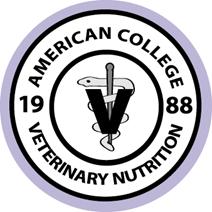It can be challenging for caregivers to know whether they are making the right food choice for their canine and feline companions, which is why I’ve made a list of what I consider the top 4 questions you should have for any food or treat you even consider feeding. Some of these questions can be answered by perusing the pet food label, while others require a call or email to the company. Either way, it is important for dog and cat caregivers to become familiar with whatever food they decide to feed.
#1: Is the food completed and balanced for the given life-stage?
- Growing animals should be fed diets that support growth and adult animals should be fed diets intended for maintenance. This doesn’t mean that the diet must be a commercial kibble or canned, just that their diet should provides all of the essential building blocks to help them grow normally and have a long happy life.
#2: Who developed the diet?
- Ideally the diet formula would be developed by someone with both an understanding of the basic nutritional needs of dogs and cats as well as food science. For example, the high temperature and pressure required of canned food production will degrade the water-soluble vitamins irrespective of whether those ingredient are considered “natural” or not. This vitamin loss must be accounted for pre-production and monitored for post-production otherwise dogs and cats will get very sick. Most veterinarians have received some training in the nutrient requirements for health and disease, but have had no formal training in diet formulation or how to manufacture pet foods. The exception would be a veterinarian that has undergone additional food science or nutrition science training at a graduate level (Master’s or PhD). I think it is safe to assume that breeders, trainers, celebrity personalities, and savvy marketers have less nutrition training than Veterinarian Nutritionists.
#3: Who makes the diet?
- Do they make their own food or just provide the label? Is it a subsidiary of a large corporation or an independent company? Companies that own the manufacturing equipment or are part of a larger organization (or both) are more likely to have internal checks and balances in place to help prevent production errors and ensure food safety and quality. Smaller companies and those that outsource manufacturing may be doing this as well, but many of them do not have the resources to monitor production lines or raw materials. But these generalities don’t always hold true. I’ve come across large manufacturing companies that don’t conduct any post production testing and smaller companies that outsource manufacturing, but conduct their own independent quality and safety checks. The only way to know what a particular company does may be to call and ask.
#4: Is it safe for you and your pet?
- Feeding raw meat diets, whether prepared at home or purchased from a veterinarian or a pet supply store, will increase your household’s risk of exposure to pathogenic bacteria, such as Salmonella, E. coli, Campylobacter, and Listeria. Yes, there have been recalls for Salmonella contamination in dry pet foods, but this is still a lower percentage than the bacterial counts on raw meat products.
I want pet owners to be informed guardians and make the best decisions for their furry companions.
Happy Feeding!
Lisa P. Weeth, DVM, MRCVS, DACVN





if you freeze the raw meat for 3 hours, you won’t have to worry about pathogens in raw meat. Dr. Karen Becker has a great video on it on youtube.
LikeLike
Hi Donna,
Thank you for reading my post and taking the time to write in. Unfortunately, I think the only thing Dr. Becker and I agree on when it comes to food for cats and dogs is that you need to feed them every day. It is true that freezing meat will kill some of the pathogens present on and in meat, but not all of it. Bacteria, like Salmonella, can survive even an extended deep freeze, while others, like Campylobacter, are destroyed with freezing. It depends on whether the bacteria form a spore (kind of like a hard outer shell), or not. Freezing does slow replication of surviving bacteria, but as soon as you thaw the meat to feed to your dog or cat, the bacteria pick up replication speed again. Washington State University has a great publication that covers all aspects of food safety (http://cru.cahe.wsu.edu/CEPublications/pnw0250/pnw0250.pdf) that I find helpful.
Lisa
LikeLiked by 2 people
Hello, I have a one year old gassy pit bull he has allergies but we haven’t been able to determine if it’s food or environmental. We have had him on a variety of foods blue to nutro.. He’s currently for simply nourish salmon sweet potato. He dose ok but dosnt seem to like it much.. He lets it sit never eats it right away. Anyway I was wondering what you feed your dog or what you would recommend.
LikeLike
Hi Johnna,
I’ve found that a lot of the gassiness issues in either my pets or my patients is related to the digestibility of the diet. Digestibility is simply how much of the food gets broken down and absorbed in the small intestine vs passing through to the colon (where the bacteria live) intact and are then fermented by colonic bacteria producing all those fun sounds and smells. The poor digestibility can be an underlying dog problem (like inflammatory bowel disease or a food allergy), but often it is related to the way the diet is made. Many companies, especially those that don’t make their own foods, don’t control for ingredient quality and they don’t do any digestion studies in their foods so they don’t know how good (or bad) their diets may be. Depending on what you’ve tried already there may be an OTC diet for your pup (have you tried him on one of the California Natural limited ingredient diets? Nature’s Recipe and Natural Balance also have lines of limited ingredient foods that I’ve had mixed results with), but the other thing to consider is a diet from your vet. OTC dry diets are only about 80% digestible at best (even premium quality/priced foods), while the Rx diets from your vet will be closer to 85-90% digestible. Home-cooked diets on the other hand will be closer to 95% digestible and a home-cooked diet trial could also be in your future if his allergies and GI issues aren’t controlled by commercial diets. If you have tried a lot of different foods it may be worth talking to your vet about an Rx limited ingredient or hydrolyzed diet trial to see if the skin and gassiness improve with a strict diet trial.
Hope you find a food your dog enjoys inside and out!
Lisa
LikeLike
Pingback: Quality Control (and potential gaps therein) in the Pet Food Industry | weethnutrition
Pingback: Quality Control (and potential gaps therein) in the Pet Food Industry | weethnutrition